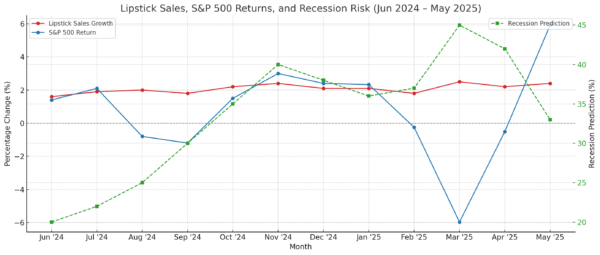What are Treasury Inflation-Protected Securities (TIPS)?
No matter what you choose to invest in, inflation is an important consideration. It factors into the real rate of return and can eat into profits and wealth—not to mention decimate the value of any funds not invested. It’s why many defensive investors choose to put their money into Treasury Inflation-Protected Securities (TIPS).
TIPS are inflation-indexed bonds issued by the U.S. Treasury. Unlike other bonds, the principal value of the bond adjusts according to the Consumer Price Index (CPI). As inflation rises, so does the par value of the bond. These products typically have maturities ranging from five to 20 years, which means an investment that’s hedged against inflation over a period where the depreciation is noticeable.
TIPS are the ultimate conservative investment for those who simply want to make sure they’re not losing wealth over time. Here’s a look at how they work, who invests in them and what advantages there are to holding TIPS.

The Purpose of TIPS as an Investment Vehicle
TIPS are, above all else, a hedge against inflation. Income investors can invest in them with confidence knowing that inflation won’t erode future returns—both in the bond’s par value and the amount paid in interest semi-annually. This is opposed to other government-backed debt securities, which might not have an interest rate that produces a real rate of return when stacked up against inflation.
TIPS are defensive investments and best-held in retirement passive income portfolios. They’re issued in $100 amounts, with original yield amounts determined at auction, in terms of five, 10 and 30 years.
TIPS Anticipate Inflation
The great thing about TIPS is that they’re designed to pace inflation, as determined by the CPI. Inflation adjustment occurs semi-annually, made to the bond’s par value as opposed to the interest rate. This protects the bond’s interest rate from inflation and ensures its face value at maturity. This way, investors get the benefit of an interest payout that’s inflation-adjusted, and a final bond par value that’s equivalent to what it was worth when originally purchased, with inflation factored in.
This method for anticipating inflation makes TIPS a great portfolio product for retirees and those seeking to preserve wealth. Investors need to beat inflation to maintain their portfolio value, but for many, securities pose too much of a risk. TIPS offer the stability of bonds, with the surety of inflation-pacing capabilities, to deliver a solution aging investors can count on. That, and the tax-advantaged nature of TIPS (state and local tax exempt) make them highly desirable.
TIPS Example
Stacey invests $1,000 in a five-year TIPS bond with a 5% interest rate. After year one, the inflation rate is 6%, which raises the face value of the bond to $1,060. Stacey receives $53 in interest payments. The remainder of the bond schedule is as follows:
- In year 2, interest is 4%. The bond’s par value is $1,102.40 and pays $55.12 in interest.
- In year 3, interest is 5%. The bond’s par value is $1,157.52 and pays $57.88 in interest.
- In year 4, interest is 5%. The bond’s par value is $1,215,40 and pays $60.77 in interest.
- In year 5, interest is 6%. The bond’s par value is $1,288.32 and pays $64.40 in interest.
TIPS vs. Fixed-Rate Bonds
TIPS are an appealing investment for defensive investors due to their inflation-proof structure. However, stacked up against traditional bonds, TIPS can lack in key areas.
While variable to hedge against inflation, TIPS tend to have a lower interest rate to other bonds by comparison. While the par value of the bond will rise over the maturity period, the comparatively low interest rate can make it a lesser investment for income investors. This, combined with taxes on increasing coupon payments, can make TIPS a negligible investment when considering real rate of return.
So why invest in TIPS? For starters, investors will never hold a bond with a par value lower than the issuing price—meaning investors can’t lose money. Compared to static accounts (checking and savings) and even money market funds, a hedge against inflation is often exactly what retirees need to preserve their wealth while maintaining a steady stream of passive income.
Tax Considerations for TIPS
The IRS sees the adjustment to the face value of TIPS as taxable income, which means each time inflation factors into the face value adjustment, it triggers a taxable event. Despite not receiving this money in the year the adjustment occurs, investors still need to pay taxes on it.
One of the ways most investors avoid this tax situation is by holding TIPS within a mutual fund. Since the fund holds the TIPS and the investor holds the fund, the investor doesn’t realize this income until they sell their shares of the fund. The other way to circumvent this recurring taxable event is to hold TIPS in a tax-advantaged retirement account.
Like all government-issued securities, TIPS are exempt from state and local taxes, and are only taxed at the federal level.
Ideal for Fixed-Income Investors
The security TIPS provide against inflation and loss of buying power makes them especially useful for preserving wealth. For defensive, conservative, income investors, there are few better vehicles to achieve this.
And many retirees utilize TIPS due to their stability. To learn more about preparing for retirement, sign up for the Wealthy Retirement e-letter below!
As their name implies, Treasury Inflation-Protected Securities are stable, secure and safeguarded against anything that might depreciate their value. And, of course, they’re backed by the full faith and credit of the United States Government.





